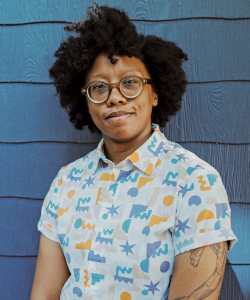Crafting the Artifact of Voice

The author of Cord Swell (Norton, 2025) considers how memory can be mined for particular phrases and pronunciations to guide poetry.
Jump to navigation Skip to content

The author of Cord Swell (Norton, 2025) considers how memory can be mined for particular phrases and pronunciations to guide poetry.

The newly appointed U.S. poet laureate discusses how he learned his craft as a literary translator and his plans for promoting poetry in translation.

The author of Ocean of Clouds (Knopf, 2025) considers the lineage of his own loping lines and encourages poets to try them.

The author of Ocean of Clouds (Knopf, 2025) considers the benefits of planning elements of a poem before its composition.

The author of Ocean of Clouds (Knopf, 2025) reflects on the practice of poetry as one of both composition and listening.

The author of Bright Fear (Faber & Faber, 2023) and Flèche (Faber & Faber, 2019) considers what it means to estrange a familiar motif in one’s writing.

“At a certain point, you just have to make that shift into the difficulty head-on. You have to hit it.” —Emily Wilson, author of Burnt Mountain

The author of Bright Fear (Faber & Faber, 2023) and Flèche(Faber & Faber, 2019) reflects on how queer traces in literature can open doorways of possibility.

The author of How to Submit: Getting Your Writing Published With Literary Magazines and Small Presses names top journals offering visibility, community, and meaningful pay to poets.

In her latest poetry collection, The Natural Order of Things, out now from Graywolf Press, Donika Kelly celebrates joy as a simple yet radical means of resisting despair.